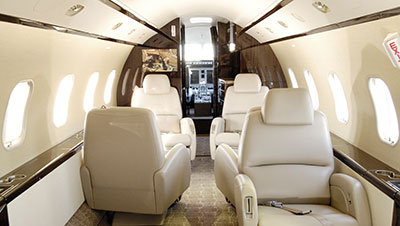
Features
At The Gate: Ramping up the demand
Fearing a shortage of workers in the Canadian aerospace industry in the years ahead, Aéro Montréal wants to encourage more young people to consider a career in aerospace.
July 9, 2013 By Brian Dunn
Fearing a shortage of workers in the Canadian aerospace industry in the years ahead, Aéro Montréal wants to encourage more young people to consider a career in aerospace.
 |
| Many young people are wary of the aerospace industry due to its cyclical nature and the fact that layoffs are a common occurrence. (PHOTO: Bombardier)
|
The organization brings together all the major decision makers in Quebec’s aerospace sector, including manufacturers, educational and research institutions, associations and unions. In 2011, it launched MACH, a program to improve the competitiveness of the province’s aerospace industry supply chain, backed by a $4-million grant from the Quebec government to kick-start the initiative. The program also gets funding from the private sector.
But Aéro Montréal is so concerned about not having enough manpower that it is launching a web site listing job opportunities and information on training programs.
A study done last year for the organization concluded there was a lack of information available to the general public about employment and training opportunities in this key sector of the Quebec economy, which employs 42,000 workers. If everything goes according to plan, the web site will be launched this fall along with a Facebook page, Twitter feed and LinkedIn page.
According to the Comité sectoriel de main-d’oeuvre en aérospatiale du Québec, the industry this year is expected to create more than 2,300 jobs for engineers, machinists, plane interior finishers and technicians. The jobs are in addition to 2,900 others that need to be filled this year due to retirement or others leaving the business. Over the next 10 years, more than 40,000 positions will need to be filled.
But according to Hélène Gagnon, vice-president, public affairs, at Bombardier Aerospace, many young people are wary of the aerospace industry due to its cyclical nature and the fact that layoffs are a common occurrence. As an example, employment in Quebec’s aerospace sector declined 8.1 per cent between 2009 and 2010, according to l’Institut de la statistique du Québec. The number of jobs in the sector dropped to 20,601 from 22,422 in the previous year. By comparison, aerospace jobs throughout Canada declined 6.4 per cent to 36,947 employees.
However, Gagnon pointed out that over the medium to long term, employment in the industry is growing. In fact, to fill certain positions, the aerospace giant has had to hire foreign workers, primarily engineering specialists. This is particularly the case for the development for the new CSeries aircraft.
Quebec Finance Minister Nicolas Marceau, who attended Aéro Montréal’s annual meeting in April, said hiring foreign workers cannot become a permanent solution to the pending labour shortage and that more Quebecers must be trained to bridge the labour gap.
The gap could grow, as demand for aerospace engineers will increase over the next few years with three European companies announcing plans to create about 200 jobs in Montreal. The companies said they were attracted to the city by the availability of trained workers and their ability to work with major OEMs such as Bombardier.
German company PFW plans to move its Seattle-based aerospace tube and duct systems North American headquarters to Montreal. It hopes to hire about 100 people in the city over three years to join its global workforce of 2,500. The company will initially provide engineering services to the area’s large equipment manufacturers and eventually become a parts supplier for Bombardier and other customers.
PFW plans to bring in about 25 engineers from abroad and then build up and train a local workforce of graduates and other employees.
Austrian firm FACC, which specializes in the manufacture of aircraft composite components, plans to open an engineering office to complement its existing work on business aircraft interiors. It already works on the interiors of Bombardier’s Challenger 300 business jet. It was also chosen as a component supplier to the CSeries and Global business aircraft. FACC plans to add at least 12 people to its current workforce of about 40. But that number could grow by another 20 to 40 if it adds a parts assembly line.
And LGM of France plans to invest more than $2 million and add 20 workers to develop its business in Canada. The company specializes in risk management and verifying that planes and railway products are safe to operate. LGM, which has a workforce of 800 in France, Germany and China, decided to open a fourth centre to be close to potential customers such as Bombardier, Pratt & Whitney, and CAE.
Aerolia, another French company, has some 100 engineers working at its Aerolia Canada office in Montreal on the centre fuselage for Bombardier’s new Global 7000 and 8000 aircraft that is scheduled to enter into service at the end of 2016 or early 2017. Final assembly will take place at a new Quebec plant, while the production of the first subassemblies will take place at Aerolia’s French and Tunisian plants. The plant is slated to open by next January and will house about 200 employees, according to Aerolia Canada.
The bottom line? Things are definitely taking off in Montreal’s vaunted aerospace market, already Canada’s most vibrant aerospace sector.
Brian Dunn is a Wings writer and columnist.